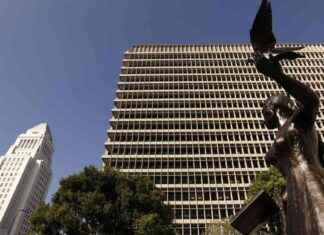Italy hosted an international summit to promote peace in the african country, mired in conflict since the fall of Gaddafi
Libya: a country ruled by armed militias
Khalifa Haftar: renegade who longs to be the new Qaddafi
An international summit to promote peace in Libya, a country plunged in chaos since the fall of Muammar Gaddafi in 2011. That was the ambitious goal of the president of the Italian Government, Giuseppe Conte, that this Monday was held in Palermo (Sicily) to about thirty of the main actors in conflict in the african country, among them the two leaders faced that fight for control of the country.
The meeting ended with the promise that the two parties in conflict will work for the country to elections next year, probably in the spring, and the photo of marshal Khalifa Haftar, is loyal to the Government based in Tobruk, and the prime minister Fayed Serraj, the leader of the Executive that governs the libyan capital, narrowing the hand after a laborious job of diplomacy in italy. Both libyan leadership held a meeting on the sidelines of the summit, something that has not happened since the month of may in the conference organized by France.
The Italian prime minister, Giuseppe Conte, said that the objective of the summit was “to accompany the country until the end of its long transition, following the initiatives of precedents, such as the Conference of Paris” and that his intention was never to provide “the solution” ultimately the crisis in libya.
Conte was presented before the media after the conclusion of the plenary assembly of the summit with more than three hours late on schedule. In the middle there was the encounter between the two leaders that control a Libya divided and the slam of Turkey, which left the conference ahead of time, “disappointed” for having been banned from the meeting held in the morning between the main actors in the conflict. “You can think of to resolve the libyan crisis by involving the people who have caused and excluding Turkey”, reported the vice-president Turkish, Fuat Oktay, before leaving Palermo.
The UN special envoy to Libya, Ghasán Salamé, expressed his wish that the presidential and parliamentary elections are held in June and considered that the summit will help to stabilize the country thanks to “a sound of a strongest unit of the international community.”
The security, terrorism and human rights were the main topics discussed by the leaders of several african countries, representatives of the Arab League, the head of the EU diplomacy, Federica Mogherini, and representatives of european governments such as Spain, which he sent to the secretary of State for Foreign affairs, Fernando Martin Valenzuela. Italy also believes that the stability of the country is indispensable to curb irregular immigration from the african continent, which is one of the main goals of the current Executive trans.
The marshal Khalifa Haftar, the man who controls the east of Libya, divided in fact in the region of Tripoli, which governs with the support of the international community, prime minister Fayez Serraj, remained until the last hour of the Monday their refusal to participate in the summit. Finally, after a long day of diplomatic negotiations on the part of Italy and of the mediation of Egypt and Russia, the main international support for Haftar, the military travelled to Palermo.
the leader of The Libyan National Army not sat down at the table with the rest of the delegations, and only participated in some bilateral meetings by the presence of representatives of Qatar and some of the militia related to their trial with Al-Qaeda. Even stayed at another residence little distant from the Hotel Villa Igiea, which hosted the summit.
beyond the future of Libya, at stake was the claim of Italy as a key partner of the african country, where Rome maintains historically important economic interests, mainly oil and gas that explodes through the oil company ENI. The summit was convened by Italy in a strategy, according to analysts, to minimize the role of France as an arbitrator of international conflict after Paris, which also has commercial interests in the area, organized in may a summit with the aim to get the warring parties to reach a commitment to hold legislative and presidential elections at the end of this year. The United nations last week announced the postponement of the elections scheduled for the coming month of December before the increase of violence in the country between August and September caused at least a hundred victims.
According to the criteria of
Learn more






